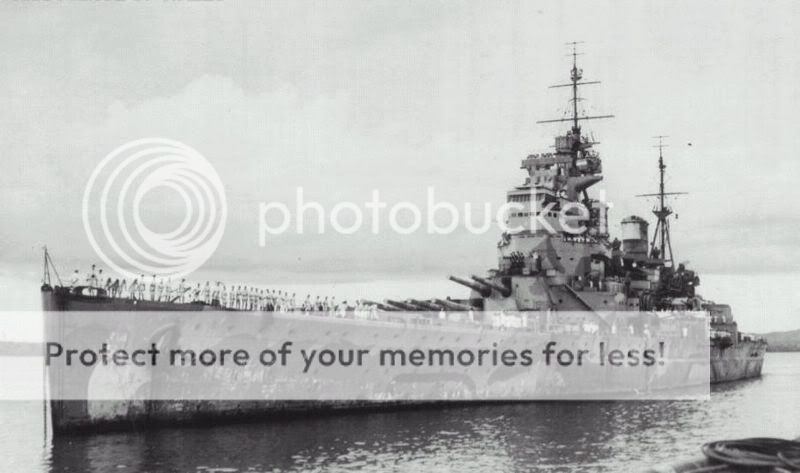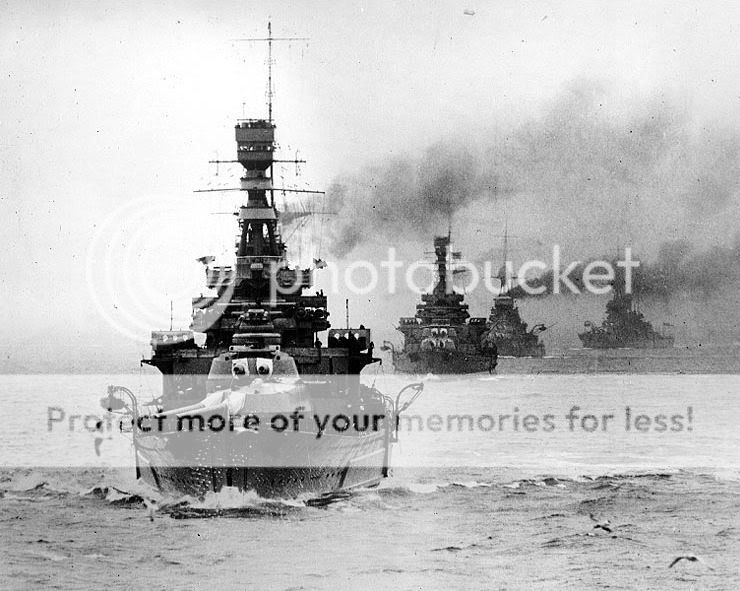Japan could have won the war, they just had to do it fast, and they bloody near succeeded. Our guys were throwing up their hats in frustration for almost a full year.
I've avoided this thread because, well it's what I'm getting a degree in (my specific area of study relates to the European theater, but I'm also very interested in naval combat) and I wasn't sure if I wanted to wade into this but I figured I'd throw out some small thoughts, also be forewarned that my area of study is not strictly MH, but I incorporate a lot of anthropological thought into my work, as the culture of the Second World War is one that obviously spans the globe so societal reactions to it are of great interest to me.
The definition of "win" is very important in this discussion. The differences in the US and Japan's definition of "winning" the war are quite different. Japan didn't ever seek to invade and conquer the US. It wanted hegemonic control of the Pacific for its Greater East-Asian Co-Prosperity sphere. It saw itself as also possessing a "manifest destiny" similar to the US's from the 19th century. Japan's goals for the war were to force the US into a position in which it would sue for peace and grant Japan the control it sought in the Pacific.
It's not till after the declaration for "unconditional surrender" by the Allies that the definition of winning the war entailed a full invasion and occupation of the Axis nations, specifically in regards to Japan, the German situation has some notable differences.
Japan sought to force the US's hand in the Pacific, while the US sought the removal and punishment of the Japanese war time government. The US also had its collective hands in the air for first year of the war because most of the resources were being prepared to be sent to Europe. The Pacific had to make do with what they had and the few transfers they received from the Atlantic command. A large portion of the US fleet was tied up in the Atlantic for a variety of reasons until later in 1942 when the remaining fleet carriers were transferred to the Pacific.
One of the major reasons for Japan's defeat has nothing to do with things military. It revolves around cultural factors that the Japanese never looked at with any seriousness. The "American resolve" and the solidifying of the nation following Dec 7th was the exact opposite of what Japan expected. They assumed that the US would back down to such a show of power instead of totally gearing itself up to fight a massive war on two of the largest fronts ever seen in warfare.
This reminds me of some scenes in Action Stations, which is of course based on the idea of Pearl. When Jukaga is with his father's friend and their human friend (his name is just not coming out right now!) the human explains that even though the kilrathi appear more powerful and are more geared for war, they will in the end lose because of human resolve and the insult of being struck from the dark. The effects of the raid on McAuliffe did do terrible damage to ConFleet, but at the same time created a massive feeling for revenge. While this cultural response varies from culture to culture, the basic principles behind it are similar.
Most truly "surprise attacks" in the current mindset always provoke the same reaction in those being attacked. Instead of hiding and retreating, differences are buried in order that the common enemy pay for the attack they committed. The US and Soviet Union both exhibit these traits following their respective surprise attacks, although how they use those societal emotions is quite different.
But to get to the original quote, Japan could have never won the war in the way in which they fought it. The attack on Pearl did more to guarentee their defeat than any other action. Now you can argue with me on military victories all you want, but on the cultural and emotional front the events at Pearl made basically everyone in America extremely pissed off. You can examine post-war stories of the difference in treatment between German and Japanese people and equipment to see just how intense these feelings were.
A good example is Operation Crossroads in 1946 where the US used both the Japanese battleship Nagato and the German battlecruiser Prince Eugen as target ships in atomic tests. Following the tests, the Nagato was left to rot (still with Japanese corpses onboard from attacks during the war) and no tests or recordings were done on it, hell its time of sinking isn't even accurately recorded. Meanwhile the Prince Eugen was gone over, attempted to be scrubbed clean and then actually moved to Kwajelain (no idea how to spell that one) where it still sits today with it's stern above the water.
Culture has as much an effect on war as do actual military encounters. A battle or war can be lost long before any are fought if the events evoke unexpected or powerful cultural responses.


 .
.


